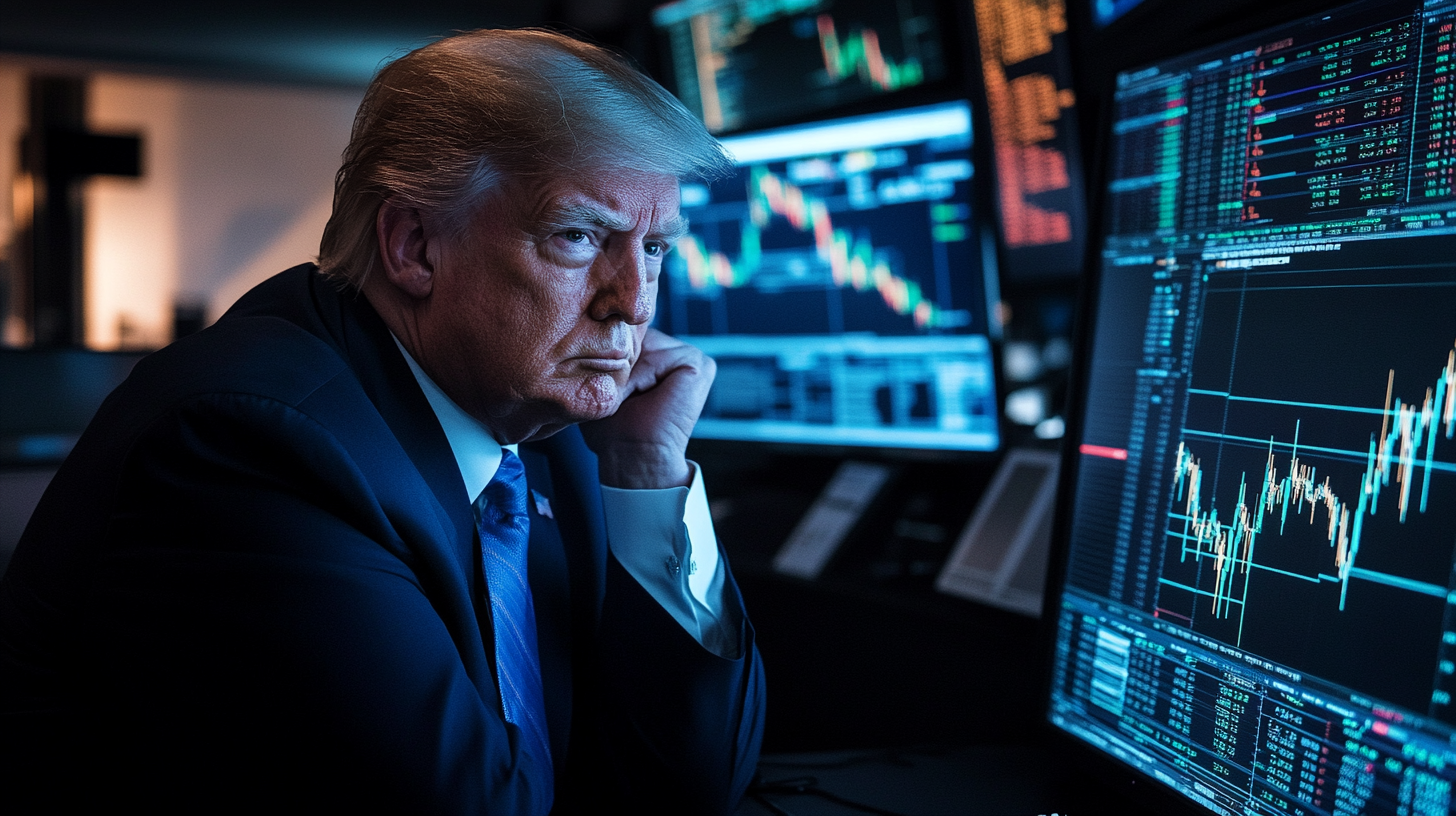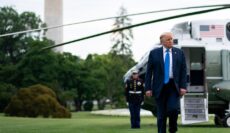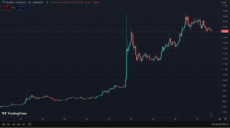President Trump’s embrace of crypto — from regulation reforms to personal ventures — is reshaping America’s digital future.
What Is Trump Crypto? President’s Role in the Digital Asset Landscape
| Updatedby Tony Frank · 7 mins read

President Trump’s embrace of crypto — from regulation reforms to personal ventures — is reshaping America’s digital future.
The intersection of politics and the crypto industry has often been unpredictable. Still, few developments have been as surprising — or as consequential — as U.S. President Donald Trump’s growing involvement in the digital asset markets. Once a vocal critic of Bitcoin and other cryptocurrencies, President Trump’s views have undergone a dramatic transformation, mirroring broader trends in the mainstream adoption of blockchain technology and the increasing role of digital assets in shaping economic fortune across nations.
Today, Trump’s name is not only linked to crypto regulation and federal policy initiatives but also to personal ventures that have captured the attention of both supporters and critics. From advocating for the establishment of a Strategic Bitcoin Reserve to launching his meme coin associated with Truth Social, Trump’s influence on the cryptocurrency industry has become impossible to ignore. His involvement in crypto projects has also reignited debates around money laundering risks and the need for clear rules, particularly regarding the issuance and trading of tokens within the digital asset markets.

Photo: World Liberty Financial Official Website.
His entry into the digital economy reflects the broader political shift toward recognizing the value and inevitability of decentralized technologies. As the ownership of digital assets becomes a new form of economic power, President Trump’s initiatives serve both as a promise of future prosperity and as an example of how traditional political leaders are adapting to a blockchain-driven world. Agencies like the Securities and Exchange Commission have found themselves under pressure to modernize oversight frameworks, ensuring that innovation is not stifled while safeguarding financial integrity.
Introduction to Trump’s Involvement in Cryptocurrency
In recent years, the digital asset landscape has witnessed an unexpected figure stepping onto the stage — President Donald Trump. Initially a vocal critic of cryptocurrencies, he expressed serious concerns about Bitcoin’s volatility and its potential use for illicit activities, such as money laundering, aligning his early views with broader skepticism within the federal government and among federal agencies.

Photo: Donald Trump Official Website.
However, by January 2024, the picture had changed dramatically. Trump recognized the shifting tides of finance and technology, recalibrating his position to appeal to tech-savvy voters and investors seeking fortune in new markets. His public endorsement of Bitcoin and the broader cryptocurrency industry was seen as both a political promise and a strategic push to cement America’s leadership in digital innovation.
Following his return to office, one of Trump’s most ambitious crypto ventures was the proposal to establish a Strategic Bitcoin Reserve — a digital asset stockpile designed to bolster the U.S. dollar and provide economic resilience against future crises. This move reflected a new philosophy: blockchain regulation should be permissive enough to encourage growth, while still ensuring security, enforcing clear rules, and protecting against financial abuses.
Trump’s ability to read the evolving market sentiment placed him at the forefront of a growing movement to integrate cryptocurrency directly into national economic strategies. In contrast to the Biden administration’s more cautious regulatory stance, Trump framed digital assets, including emerging forms of tokens, as critical tools for maintaining American financial dominance in an increasingly competitive and decentralized global landscape.
Currently, TRUMP trades at a market price of TRUMP $13.89 24h volatility: 10.2% Market cap: $2.78 B Vol. 24h: $1.31 B .

TRUMP Price Chart. Photo: TradingView.
Regulatory Reforms and Industry Impact
President Trump’s approach to crypto regulation signaled a sharp departure from the restrictive measures often associated with the Biden administration. In his first week back in office, President Trump signed several executive orders aimed at streamlining compliance requirements for crypto companies, sending a clear message that the U.S. intended to lead, not follow, in the global blockchain race.
One of Trump’s most significant actions was the revitalization of the President’s Working Group on Financial Markets, directing it to create new frameworks for the ownership and operation of digital assets. The working group, now populated with crypto-friendly voices and supported by leaders like David Sacks, played a crucial role in coordinating with Congress and the Treasury Department to implement wide-reaching reforms.
The efforts of the working group culminated in landmark legislation that sought to clearly define the roles of federal agencies in overseeing cryptocurrencies, including differentiating between securities and commodities. Trump’s administration emphasized that a permissive regulatory environment was essential not only for innovation but also for attracting companies that might otherwise move operations overseas.
Moreover, by advocating for flexible blockchain regulation, Trump encouraged companies across various sectors to adopt decentralized technologies, ensuring that the U.S. would remain a leader in the digital economy. His government aimed to establish the United States as the preferred jurisdiction for emerging crypto ventures, from startup exchanges to large-scale tokenized asset platforms.
Trump’s proactive stance has also intensified international competition, with nations like China, the United Arab Emirates, and members of the European Union accelerating their own blockchain initiatives in response. As global governments move to implement their digital strategies, the U.S. faces both opportunities and challenges in maintaining its leadership position. The alignment of federal agencies under a unified vision for clear rules around tokens, securities classification, and money laundering prevention has become a defining feature of Trump’s policy legacy.
At the same time, critics warn that a permissive environment could expose markets to greater volatility and regulatory arbitrage. Nevertheless, President Trump’s emphasis on fostering domestic crypto companies and encouraging innovation at the intersection of finance and technology has sparked a wave of entrepreneurship. Many blockchain startups and established financial institutions now view the U.S. as the most promising jurisdiction for growth, setting the stage for an era where digital assets could become as central to economic power as traditional currencies.
Personal Ventures and Controversies
Beyond government-level reforms, President Trump’s ventures into the crypto industry have been equally headline-grabbing. His ownership ties to various projects, including his own meme coin linked to the Truth Social platform, have exemplified how digital assets can be used to energize political bases and generate new revenue streams.
The launch of Trump’s meme coin in March 2025, heavily promoted through his media outlets, became an example of how a political figure could directly participate in the cryptocurrency ecosystem. While critics raised concerns about conflicts of interest, the initiative’s success demonstrated the growing appetite among Trump’s supporters to invest in projects aligned with their political and financial values.
Furthermore, Trump’s embrace of crypto ventures served as a rallying cry for broader adoption among conservative circles, who had previously viewed digital assets with suspicion. His messaging framed blockchain technology not only as a tool for economic freedom but also as a means to challenge centralized control by traditional institutions. This narrative resonated strongly with his political base.
Meanwhile, the appointment of an AI czar to oversee both artificial intelligence and blockchain innovation within the federal government underscored Trump’s belief that the United States must dominate the next generation of technological infrastructure. In partnership with Congress and agencies like the Treasury, Trump pushed for aggressive legislation to ensure that American companies would lead the world in these sectors.
The cryptocurrency industry has evolved rapidly under Trump’s influence. His policies have helped shift the perception of digital assets from speculative investments to legitimate components of national economic policy. Trump’s legacy in this arena will likely be seen in the continued expansion of the digital asset markets, the establishment of pro-crypto government frameworks, and the elevation of crypto ownership to a matter of national interest.
As the Senate continues to debate future crypto-related bills, many of which were initiated during Trump’s renewed tenure, it’s clear that the president’s push for deregulation and innovation will leave a lasting mark. His willingness to intertwine political branding with crypto ventures sets a powerful — and controversial — example of leadership in the emerging digital economy.
In the coming years, the influence of President Trump’s actions on the cryptocurrency industry could shape not only America’s financial system but also the global balance of digital power, as countries race to establish their own digital asset stockpiles and blockchain frameworks.
Disclaimer: This article is for informational purposes only and does not provide financial, trading, or investment advice. Cryptocurrency prices can fluctuate wildly, so always do your own research (DYOR), assess risks, and consult a professional before making financial decisions. The author and team are not responsible for any losses from using this information.
FAQ
What is the significance of the digital asset stockpile proposed during Trump's campaign?
The digital asset stockpile, inspired by the Strategic Bitcoin Reserve concept, aimed to secure Bitcoin and other cryptocurrencies as critical national resources to enhance financial resilience and economic strength.
How has official Trump branding influenced crypto projects?
Official Trump endorsements and branding have significantly boosted the visibility and perceived legitimacy of several crypto projects, attracting both political supporters and speculative investors.
What role does World Liberty Financial play in Trump's crypto initiatives?
World Liberty Financial has been linked to efforts supporting Trump’s cryptocurrency ventures, promoting blockchain-based solutions aligned with his political and economic vision.
How did President Donald Trump’s stance on cryptocurrency evolve?
President Donald Trump shifted from strong skepticism of cryptocurrencies to becoming a vocal advocate, embracing digital assets as tools for national strategy and political outreach.
What is David Sacks' connection to Trump's crypto policy initiatives?
David Sacks, a prominent entrepreneur and investor, has been cited as one of the influential voices advocating for more crypto-friendly policies during discussions surrounding Trump’s digital asset strategies.
Did the White House under Trump actively support the development of blockchain and crypto technologies?
Yes, during Trump’s presidency, the White House took steps to reduce regulatory hurdles for blockchain startups and promote innovation, signaling a more supportive stance toward crypto technologies.
Kalshi, a federally regulated prediction market, faces both opportunities and legal hurdles as it reshapes how users trade on real...
Coinbase is one of the most trusted cryptocurrency exchanges, offering intuitive access to digital assets. This guide covers every...